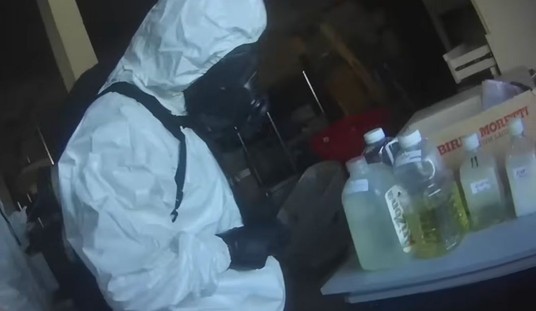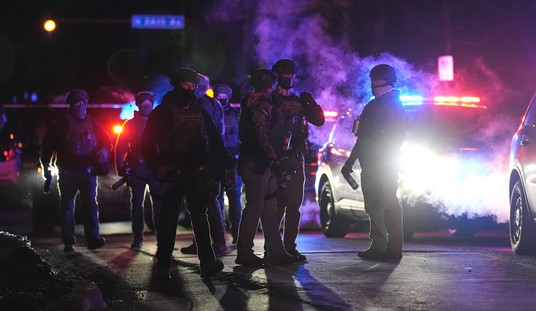
A flag flies on Capitol Hill in Washington, Tuesday, Nov. 28, 2017, as President Donald Trump meets with Senate Republican leaders. (AP Photo/Susan Walsh)
House Democrats have been threatening to impeach President Trump since the day he was elected. Although the Mueller Report removed any valid grounds for impeachment, they still view it as a live option. They can’t name a specific crime the President has committed, but he must go anyway. Because they say it, it is so.
Over the weekend, several Republican senators weighed in on the topic. A conviction in the Senate would require 67 votes. With a 53-47 Republican majority and Vice President Mike Pence available to cast a deciding vote, the President’s removal is a near impossibility. In addition, as the Senate Majority Leader, Mitch McConnell has the “power to set the rules and ensure the briefest of trials. McConnell would have broad authority to determine how a Senate trial would play out. He could stifle the arguments of Democratic prosecutors from the House as long as he’s backed up by his fellow GOP senators.” And it appears that he is.
Sen. Lindsey Graham (R-SC) said, “I think it would be disposed of very quickly. If it’s based on the Mueller report, or anything like that, it would be quickly disposed of.”
Sen. John Cornyn (R-TX) agrees with his colleague, saying that, “It would be defeated. That’s why all they want to do is talk about it. They know what the outcome would be.”
“Why on earth would we give a platform to something that I judge as a purely political exercise?” asked Sen. Thom Tillis (R-NC). “We have to perform our constitutional duty, but if people think that we’re going to try and create a theater that could give you the perception that this is a matter that rises to the level of Watergate, that’s nonsense.”
Even Democratic senators agree that a conviction in the Senate is a long shot. Sen. Dick Durbin (D-IL) said, “There are 47 Democrats. On a good day, even when the president is at his most outrageous level, only three Republican senators will publicly say so.”
Most Americans are opposed to impeachment. A recent Harvard-Harris poll finds that:
65 percent of Americans say Congress should not begin impeachment proceedings against Trump. Sixty percent agree with Attorney General William P. Barr that “the facts and public actions of President Trump did not amount to obstruction of justice, especially since there was no underlying collusion.” And 58 percent believe that “Given the Mueller report . . . we should turn the page on investigations of President Trump.”
The Chief Justice of the Supreme Court, John Roberts, would preside over a trial in the Senate. But he would have to follow Senate rules and traditions.
Under the Senate manual’s rules for impeachment trials, the presiding officer — likely Roberts — would rule on all questions of evidence, but any senator could ask for a formal vote to appeal a decision. Under the Senate rules, it takes a majority to sustain or overrule a ruling from the presiding officer.
Democrats would need to persuade at least four Republicans to break with McConnell in order to bring in any witnesses or exhibits he decides to block.
Former Sen. Trent Lott (R-MI) was the Senate Majority Leader during former President Clinton’s 1999 Senate trial. Lott said “he had broad power to shape the debate, which he wanted to keep short, knowing that it was politically unpopular.” Here is how he described his experience.
Some people wanted to bring Monica Lewinsky into the well of the Senate and take her statement in front of the whole Senate, and I said, We’re not going to do that. As long as I’m the majority leader of the United States Senate, we’re not going to be talking about a stain on a blue dress in the well of this chamber. So we didn’t do it.
Then they wanted to bring in Clinton’s appointments secretary, [Betty Currie]. I said, ‘We’re not going to do it.’ We didn’t do it.
Some of the House people always felt like I could have gotten him removed if I really wanted to. I wasn’t ever going to have the votes. So the question was: How do we do it with dignity to get it to a conclusion?
Lott said he had hoped for an even shorter trial, but pressure from conservative senators such as Rick Santorum (PA), Phil Gramm (TX) and Don Nickles (OK) “wanted a more thorough review of the charges.”
So, even in a case where a President was actually charged with crimes, perjury and obstruction of justice, and the opposite political party held the senate majority, the Senate was reluctant to convict. How much more reluctant would they be when a same-party President, who has not been charged with any crimes, is on trial?
House Democrats talk about impeachment as if Trump is really guilty of a crime. Here is my question. Have they repeated it so many times and just want it to be true so badly that they now believe it? Or do they know that it’s all been a lie?













Join the conversation as a VIP Member